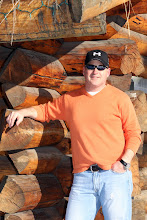It takes certain character or personality qualities to run in the next position. To do it well is an incredible help to the leader – to violate the position and trust of the leader while in this role can be disastrous.
Today we’re talking about the last positions on the team, the position closest to the sled and closest to the Musher (Leader). This last set is referred to as “Wheel Dogs” – or, more informally, just wheelers. The job of the wheeler is to be that seasoned veteran that not only pulls but help the musher turn the sled.
For the most part, the sled is noisy, ominous and right on your heals. If that is too intimidating or problematic for a team member then they should run in a different position. If you’re constantly looking over your shoulder, constantly wondering if you’re going to be run over, by the time you reach the Burled Arch, you’ll be so traumatized that you’ll be looking for the veterinary tent marked dogs with PTSD!
In every organization that I’ve been a part of there have been people that have gotten too close to the sled – too close to the “underbelly of the beast”. Business isn’t always pretty close up and from my time with non profits, neither are they. There are things that as “Team Dogs” we just don’t want to know and as Lead or Swing – we can run far enough ahead to ‘leave our troubles behind’.
Wheel dogs have more of an even keel personality, not much gets to them and they are worthy confidantes poised to provide sage advice or insight to help the musher to turn the sled. To have a team player that can be that close, see things others can’t handle, maintain confidence, and provide much needed insight or commentary at the right time is an incredible help for any leader. This position can have enormous influence with the leader because they are closest to them.
Keys to increasing your influence as a “Wheeler” in your organization are:
Maintain that even-ness. Sudden, jerky moves, nervousness, and emotional swings can “flip the sled”. The leader must be able to count on you as a consistent producer AND as someone who is consistent emotionally.
Understanding. A great component of Wheelers is that they know and understand their musher. They, 100%, realize that when he / she may appear to be yelling – that it is due to the fact that they are the closest to them – AND that in order for the Lead, Swing, and Team dogs to hear – the volume is going to be loudest to you. Understanding that you’re going to see things that might be unsettling and that as a seasoned veteran, you have enough experience to know what is real trouble and what will get worked out a little further down the trail.
Maintain confidence. There can be no greater duty of the Wheel Dog position than to maintain the leader’s confidence. The things you hear, the things that are shared MUST stay in confidence. To violate this confidence is cause for immediate dropping at the nearest checkpoint! If you know that you have difficulty with this – it is much better to be open and, simply, say – I would prefer to not know the details! What you see and hear near the sled – stays there!
Help with the sled. Tell the musher what they need to hear – not just what you think they want to hear. Leave the role of “YES” dogs to another position. To simply go along with a plan that you believe to be detrimental to the team, only to say you knew it would fail is terrible! How you counsel or advise your musher is just as important, if not more. Keys to this are to ask how the leader prefers negative or dissenting communication. It might look something like you saying, “There are going to be times when I disagree with a decision or direction. Would you prefer that publicly in the meeting or offline and privately?” Disagreement is natural and, to an extent, healthy – just make sure you know HOW to provide that second opinion.
Remember, you are closest to the sled – you have great opportunity to Influence – use it right and you’ll have significant impact on “turning the sled”.



